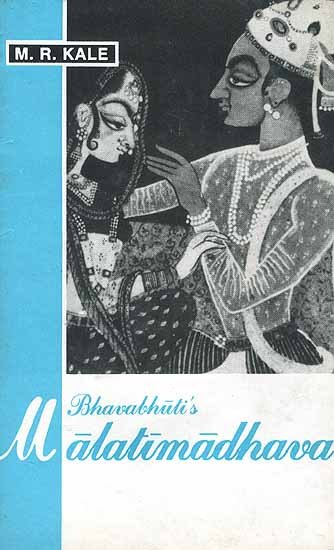Malatimadhava (study)
by Jintu Moni Dutta | 2017 | 52,468 words | ISBN-10: 8120813057 | ISBN-13: 9788120813052
This page relates ‘Vaidarbhi Riti’ from the English study on the Malatimadhava of Bhavabhuti:—A Prakarana type of Drama in ten acts revolving around the love-story of Malati (from Padmāvatī) and Madhava (from Vidarbha). This study discusses the history of its author and the literary, social, religious, historical and cultural aspects of the Malatimadhava.
Part 3.3a - Vaidarbhī Rīti
The Vaidarbhī rīti is of beautiful arrangement of syllables which are sweet in sound. Mostly it is devoid of compound words and thus of easy comprehension. Prasāda and Mādhurya are two conspicuous merits of the Vaidarbhī style.[1] This style goes well with the Śṛṅgāra, Hāsya and Karuṇa rasa and it is particularly suited to all other tender feelings.
In the Mālatīmādhava, an impressive of the Vaidarbhī rīti is found in the verse sarale sāhasarāgaṃ.............etc182 wherein the use of compound has been avoided. Herein the description is couched in a simple, sweet and spontaneous language. Hence, this verse is classed under the category of Vaidarbhī rīti. Again, the verse ujjvalālokayā snigdhā …………etc[2] is another example of Vaidarbhī rīti. Bhavabhūti has composed this verse beautifully with the arrangement of the minimum possible sweet sounding syllables such as la, ka, ya in the word ujjvalālokayā; ra, ja, ta, etc in the word rājate; ma, sa,la in the word malīmasamukhī and has tried to avoid the harsh syllables like ṭa, ṭha, ḍa, ḍha etc. This verse is also free from long and complicated compounds. Here, only simple and short compounded words like ujjalālokayā, pradīpaśikhayā have been used. Moreover, the words of the verse are easy of comprehension which entitles it to be classed under Vaidarbhī style.
